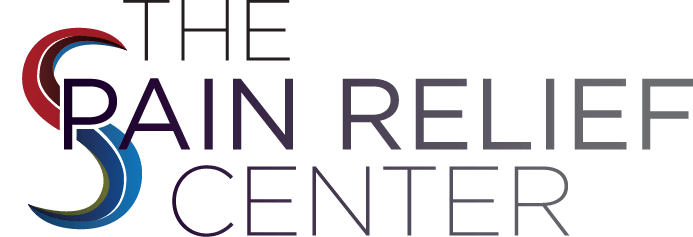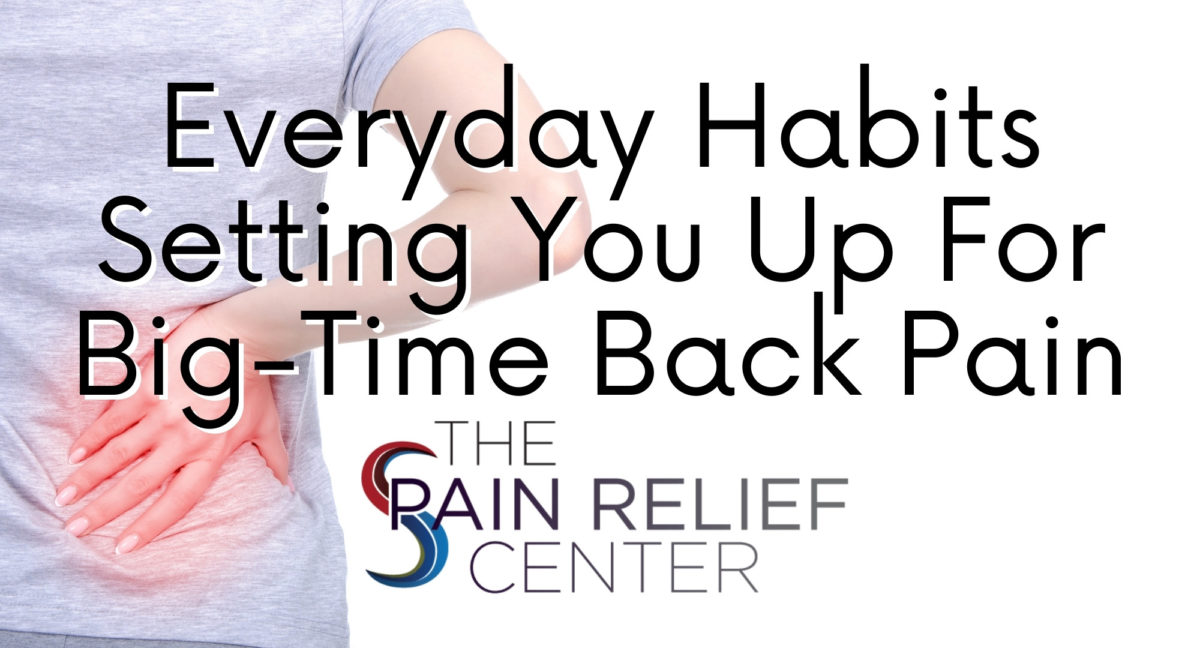Habits that Cause Back Pain: Are Your Everyday Habits to Blame for Your Back Pain?
Back pain sends more patients to doctors than any condition other than the common cold. In fact, it’s the fifth most common reason for hospitalizations and third most common cause of surgery. And 56 percent of people with lower-back aches say symptoms disrupt their daily routines, including sleep and sex. Talk about a pain in the … back.
Here are some mistakes that may be causing your aches and how to correct them.
You’re a desk jockey
Did you know that sitting puts 40 percent more pressure on your spine than standing? This means that excessive sitting is one of the habits that cause back pain. Let’s be honest: Maintaining proper posture is probably the last thing you’re thinking about when under a major work deadline. And on a jam-packed day, regular stretching breaks may not seem like a wise way to spend your time. But skipping these habits may cause your back to suffer. That’s because back muscles will weaken if you don’t use them; inactive joints lose lubrication and age more quickly.
Fix It: Sitting at a 135-degree angle can reduce compression of the discs in the spine, so lean back slightly every now and then. Do it when you take a phone call or a coworker stops by to chat. Your lower back should be supported, and your head should be straight – not lurching forward – when you look at your computer screen. Get up and walk around for a couple of minutes every half hour – take trips to get water, use the bathroom, or grab papers off the printer.
Okay, so you have a desk job. It’s obvious sitting in a desk for hours on end every day is terrible for you. And it could be one reason your back hurts. Does your company offer stand-up desks? If you can’t get your hands on an adjustable workstation, see if your company will allow you to bring your own. You can get one for a reasonable price at stores like IKEA.
If you really want to go big, check out the company Altwork. It develops high-tech office chairs, complete with headrests, leg rests, a desk and a monitor mount. The company builds based on the principle that your office chair should conform to your body, not the other way around.
You have a long commute
Just like at your desk, hunching over a steering wheel can tighten chest muscles and cause your shoulders to round. Slumping posture can zap energy and make you look heavier, not to mention cause back and neck problems.
Fix it: Be sure you sit at a 90-degree angle, close to the wheel so you don’t have to stretch. Extending your leg puts your back in a compromised position, but many people don’t even realize they’re doing it.
You’re not the best eater
Research shows that eating habits that are good for your heart, weight and blood sugar are also good for your back. Finnish research found that people who suffered from back pain were more likely to have clogged arteries to the spine than healthy control subjects. Healthy circulation brings nutrients to the spine and removes waste. If this doesn’t happen, inflammation can result, and inflammatory chemicals in the back can trigger nerves to send pain signals to the brain.
Fix it: A back-healthy diet is one that reduces inflammation. Avoiding excess caffeine and processed foods (read ingredient labels for the following: hydrogenated or partially hydrogenated oils, enriched wheat flour, words ending in -ìose, and additives that end in -ìates or -ites), and eating more whole grains, soy, nuts and seeds, protein (chicken, fish, lean meat), vegetables and fruit can help.
For more info: check out Three Tips for Boosting Your Body’s Natural Painkillers.
Your life is in your purse
A stuffed-to-the-gills handbag may cause back damage that’s comparable to a sports injury! When you tote a heavy bag, your shoulders become imbalanced,. Your body elevates the shoulder carrying the bag, which throws your spine off-kilter – doing this every day can cause back muscles to ache over time.
You don’t really have to carry as much in your bag as you think you do. How long has it been since you’ve flipped through the book in your backpack or written with the other twelve pens you have at the bottom of your briefcase? Lugging around a heavy bag can cause back pain. Worse case scenario, the bag you carry could spur nerve trauma or degenerative joint disease, according to iChiropractic and Wellness. Seriously evaluate what you need to have with you at all times, and take the leftover junk out.
Fix it: First, carry the lightest bag possible. (Some of today’s styles – with chains, studs and other hardware – are heavy even when empty.) The American Chiropractic Association recommends that your bag – when fully loaded – weighs no more than 10 percent of your body weight. Alternate that shoulder you carry the bag with from day to day, and consider splitting your stuff between two bags (one for each arm), which will pain proof your load by distributing it more evenly.
You watch too much TV
Parking yourself in front of the tube for hours and hours a day doesn’t make your back very happy. For one thing, excess TV time is probably cutting into exercise time. In one Norwegian study of teens, those who sat in front of TV or computer for 15 hours a week or more were three times as likely to have lower-back pain as their more active counterparts (the average American teen watches three hours of TV a day).
Fix it: Limit TV to shows you really want to watch, instead of idly channel surfing. And instead of fast-forwarding through commercials, do some stretches or strength moves during the breaks, which will prevent muscle strain from sitting still too long. If you have a kid complaining of back pain, make sure they walk at least one mile daily; this can cut back pain in half and give their still-developing spine a chance to stretch out.
Using Uncomfortable Stuff
Sometimes, people brush off the quality of materials they use every day when in fact their negligence could be the cause of their back pain. Got away with buying a cheap mattress or pillow? What about the furniture you rest on each evening after work? Sleeping on an old or low-quality mattress or pillow could be causing you neck and back pain. The Express Tribune recommends replacing your mattress no more than every 10 years. Choose to rest on materials that support your back, but be sure the support level remains just right. Mattresses that are too squishy or firm may cause back pain as well.
Not Getting Physical
Haven’t hit the gym in a while? Or, maybe, at all? Perhaps you hate exercising, and that’s all right. But you still have to treat your body well, and that includes getting a little moving in. According to the Express Tribune, skipping out on exercise could increase your lower back pain due to weakened core muscles, which leads to poor posture.
Pumping iron or pushing yourself to finish the last mile on the track releases stress, allowing your back muscles to free tension. Don’t have time to exercise? Try getting an elliptical at home for cardio. You could also get a yoga mat to lay out in your living room during any bit of free time you have. Grab your laptop, find a yoga video on YouTube and start breathing.
Not Relieving Stress
Work and home life can stress you out, leaving your back tightened. When you start hurting, it seems as though nothing will get rid of the knots in your back. A massage can help work them out. If you don’t want to pay for frequent massages or don’t have someone else who can rub your back at home, invest in a massage backing you can lean against a chair. They come in a multitude of variations and sizes, and some retailers even have samples out for you to try.
Try being as relaxed as you can while you sleep too. Doing a breathing exercise or swabbing your pillow with an essential oil like lavender can help you to rest more deeply. To fully rid your tension, you may also have to tap into your psyche as well. Is your boss continually making you angry? Perhaps trying to talk yourself through it, forgiving others or refraining from dwelling on toxic situations will help you to release the tension that’s causing your back pain.
Though a quick fix, like a massage, can occasionally free the pain, the hurt usually stems from one of your daily habits. Our American lifestyle, where you’re shamed for leaving your desk at five and where stress remains the only indicator that you’re working hard, places us on a path to bad backs and relentless irritation.
Being more aware and shifting the way you treat your back remains the key to experiencing less back pain. Though it may cause you to march to the beat of a different drum among your coworkers and family members, breaking painful habits will most likely spur a more peaceful and enjoyable life.
Habits that Cause Back Pain: Uncommon But Serious Possibilities
Though there’s a good chance your back pain stems from your lifestyle, it could be caused by a more serious source. According to SpineUniverse, more common yet painful health conditions include sprains or strains, spinal nerve compression or a bulging disc. Perhaps you sustained an injury unbeknownst to you until it later began causing pain. If your back continually bothers you or the pain grows worse, don’t hesitate to visit a doctor.
More uncommon problems for back pain include a spinal infection or a spinal tumor. Though you don’t want to have to consider the worst case, your back pain may stem from a serious issue like a cancer infection, swelling arteries next to the spine or inflammatory arthritis in the spine, according to PainScience.com. Listen to your body and trust your gut. If you think it may be something more serious than just carrying a heavy bag every day, get your back pain checked out.
Get Rid of Back Pain at the Pain Relief Center in Plano, Texas
Can’t kick your back pain? Find out what’s going on at the Pain Relief Center in Plano, Texas. Dr. Gabriel Rodriguez and his team will offer custom solutions to relieve your back pain.


